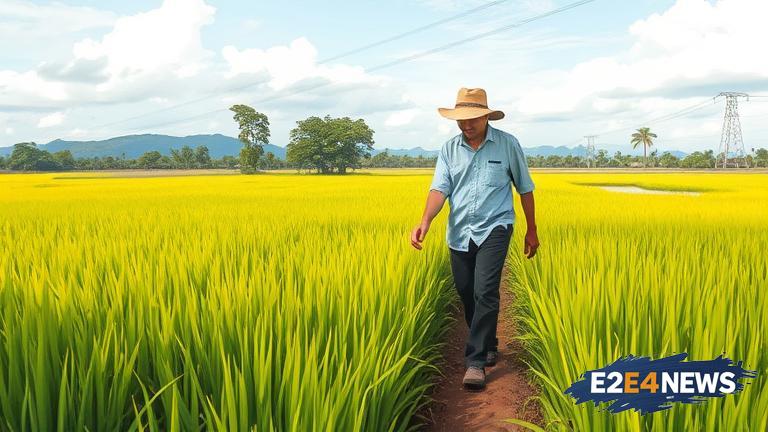The Southeast Asian Regional Center for Graduate Study and Research in Agriculture (SEARCA) has partnered with various stakeholders to promote climate-resilient rice farming practices in Laguna, Philippines. The project aims to enhance the resilience of rice farmers in the region to the impacts of climate change. Rice is a staple crop in the Philippines, and Laguna is one of the major rice-producing provinces in the country. However, rice farmers in the region are facing significant challenges due to climate change, including rising temperatures, changing precipitation patterns, and increased frequency of extreme weather events. To address these challenges, SEARCA and its partners are working together to promote the adoption of climate-resilient rice farming practices, such as the use of climate-tolerant rice varieties, improved irrigation systems, and integrated pest management techniques. The project also includes training and capacity-building programs for rice farmers, as well as the development of climate-resilient agricultural technologies. The initiative is expected to benefit thousands of rice farmers in Laguna, and contribute to the country’s food security and sustainable agriculture goals. The project is also seen as a model for climate-resilient agriculture in other parts of the Philippines and Southeast Asia. SEARCA is working closely with local government units, farmers’ organizations, and other stakeholders to ensure the success of the project. The project is also supported by international organizations and donors, who recognize the importance of promoting climate-resilient agriculture in the region. The adoption of climate-resilient rice farming practices is expected to improve the productivity and income of rice farmers in Laguna, and reduce their vulnerability to climate-related risks. The project also aims to promote sustainable agriculture practices, reduce greenhouse gas emissions, and protect the environment. Overall, the initiative is a significant step towards promoting climate-resilient agriculture in the Philippines, and contributing to the country’s sustainable development goals. The project is also expected to have a positive impact on the local economy, and contribute to the well-being of rice farmers and their communities. SEARCA and its partners are committed to supporting the project and ensuring its success, and are working closely with stakeholders to monitor and evaluate its impact. The project is a testament to the importance of collaboration and partnership in promoting sustainable agriculture and addressing the challenges of climate change.
